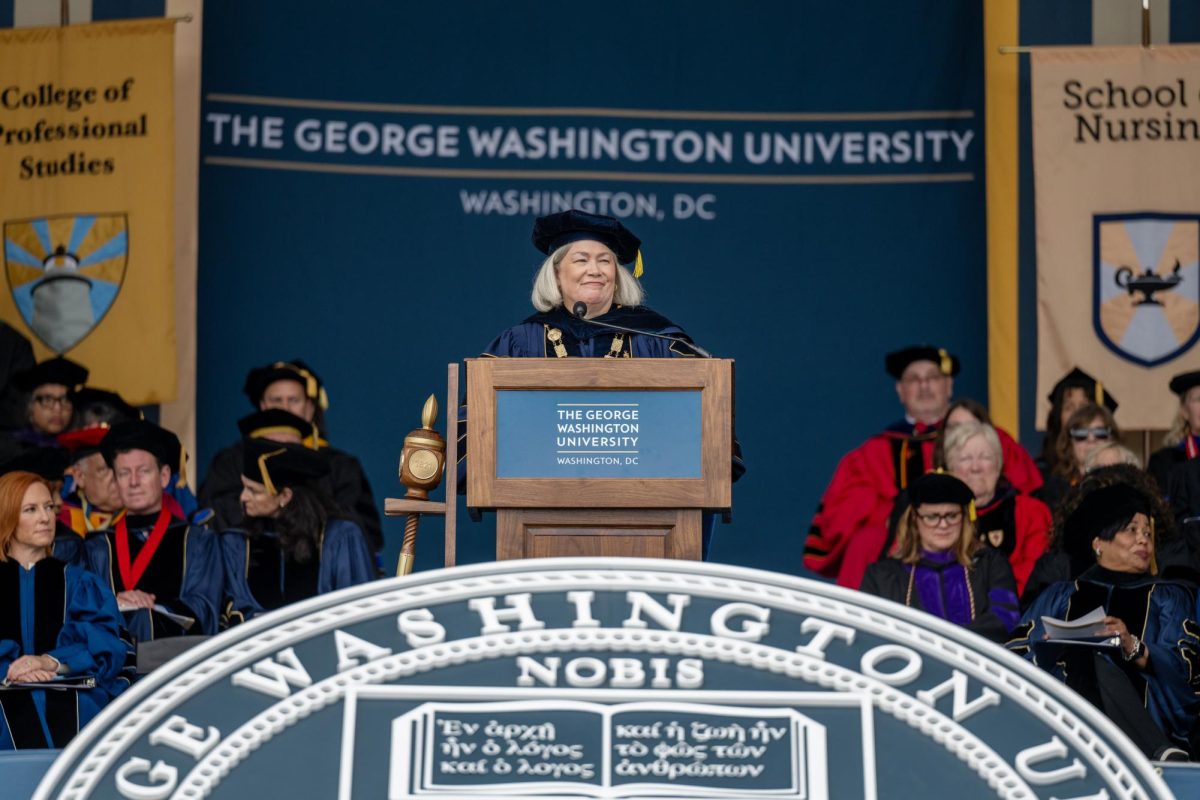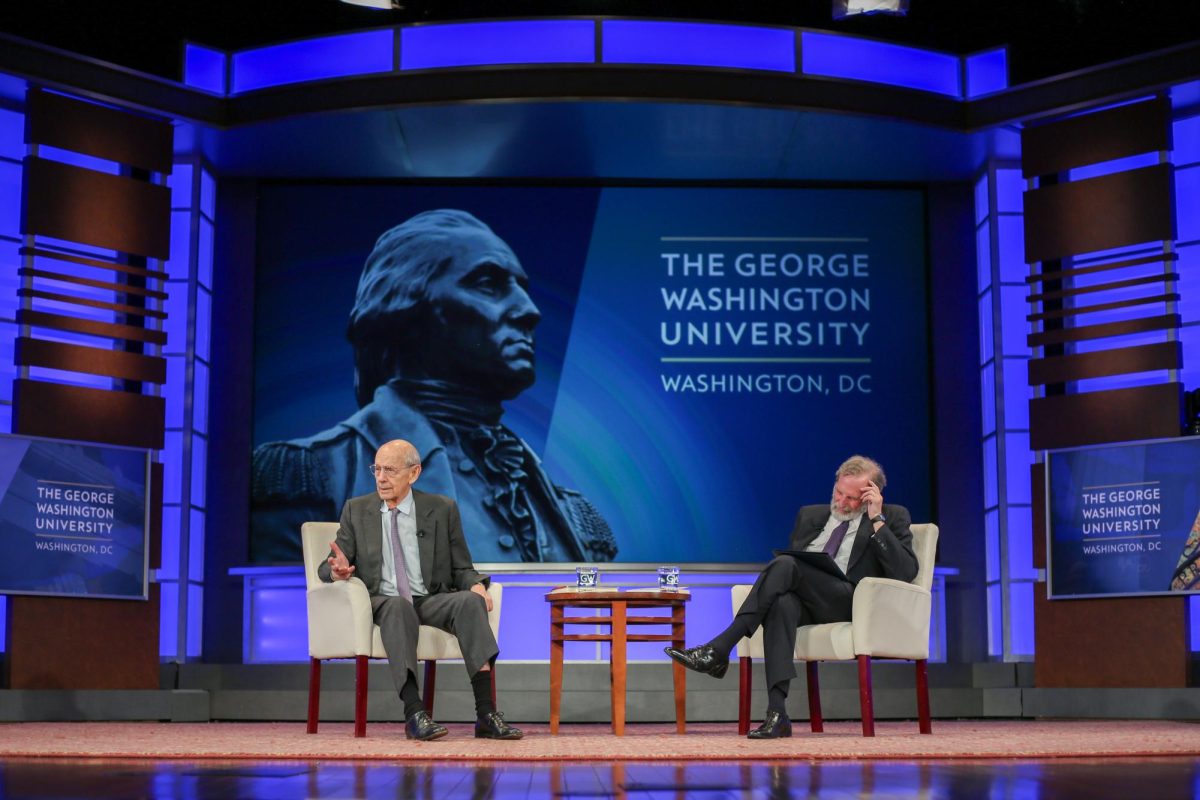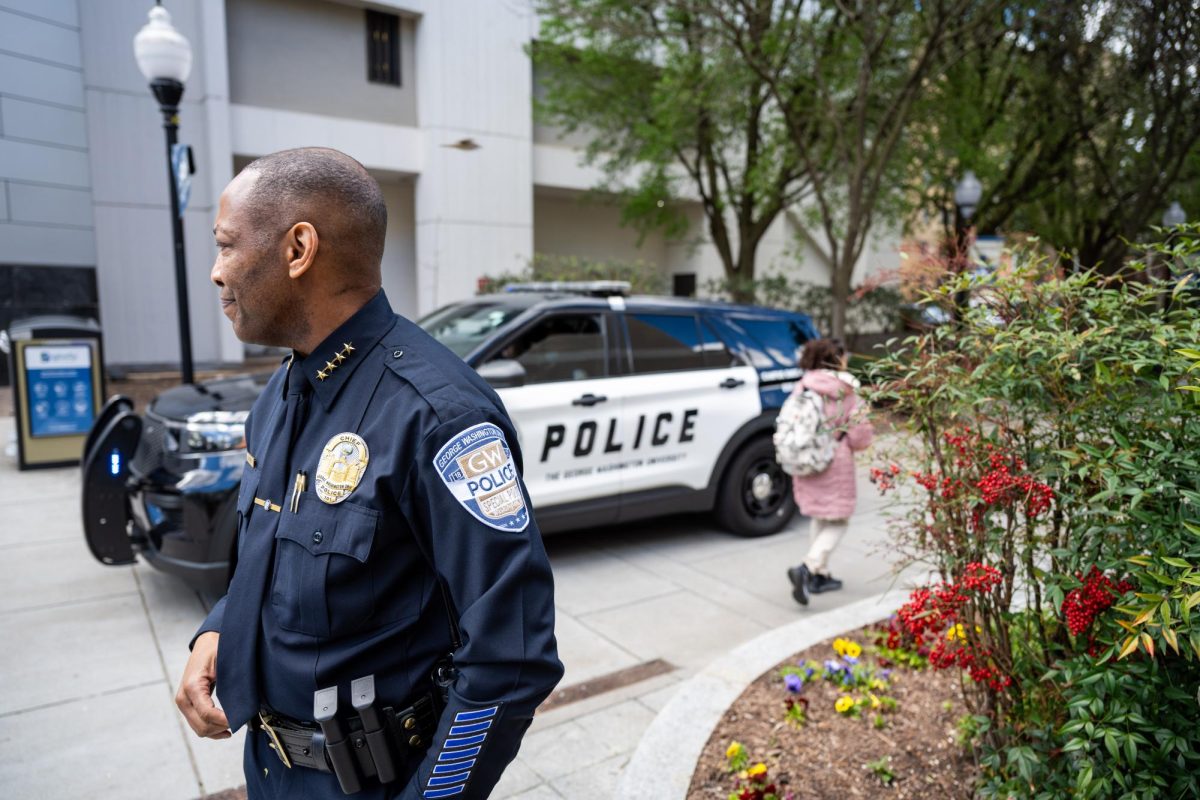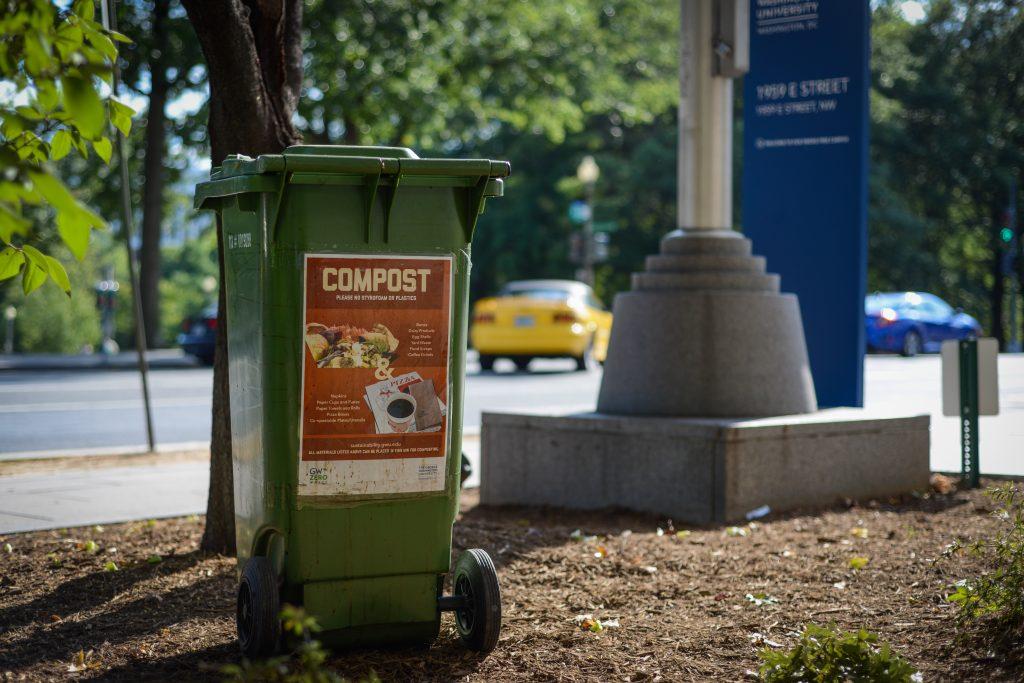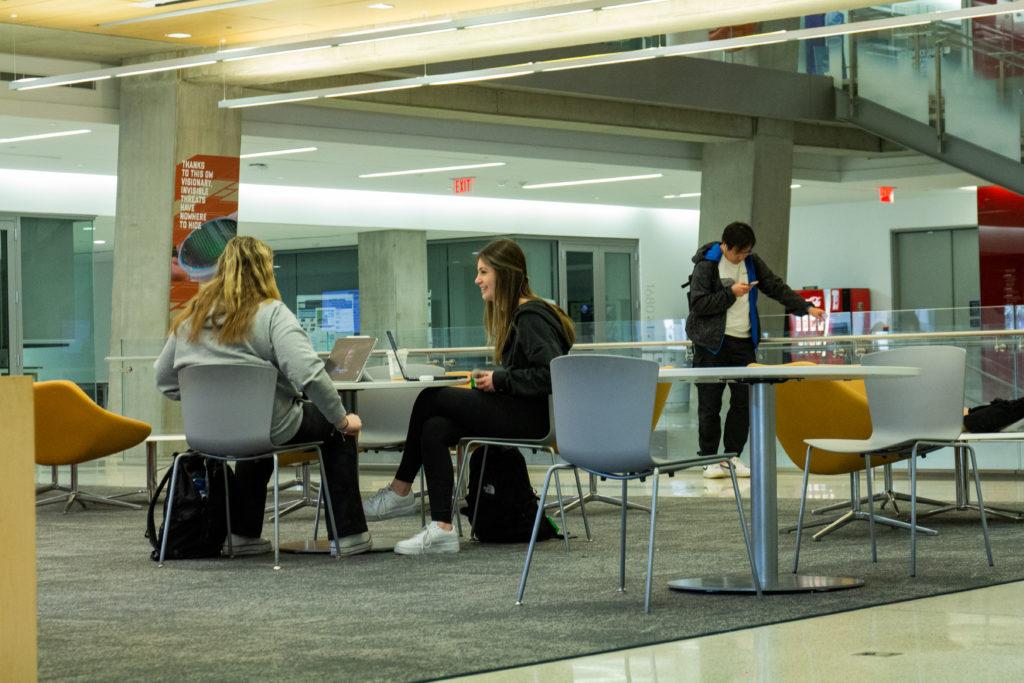GW faculty joined U.S. Senator Chris Coons (D-DE) to discuss research and policy efforts aimed at combatting climate change at Lisner Auditorium on Wednesday.
Coons — the co-chair of the Senate Climate Solutions Caucus, a group of congresspeople working together to combat climate change while protecting U.S. economic interests — discussed his work on bipartisan legislation aimed at slowing climate change following a panel discussion with three professors about their climate research at the University. The GW Alliance for a Sustainable Future hosted the discussion with Coons and Frank Sesno, the alliance’s executive director, as part of a larger end-of-year celebration of its mission to promote research and partnerships that address climate issues.
University President Ellen Granberg gave introductory remarks at the event and said GW’s “unparalleled” proximity to the nation’s capital enables the University to collaborate with top government leaders like Coons on climate legislation through organizations like the Alliance for a Sustainable Future.
“In this community, our GW Revolutionaries who continue to come together to unlock bold solutions to some of the world’s most pressing problems,” Granberg said. “And today, no challenge poses a greater threat to the sustainability and wellbeing of our planet, people and ecosystems than climate change.”
Provost Chris Bracey then sat down with professors Susan Anenberg, Saniya LeBlanc and David Rain to discuss their climate change research and how it will impact future sustainability work.
Anenberg, the chair of the environmental and occupational health department who researches the health implications of air pollution and climate change, said combating climate change will not only help reduce natural disasters but also benefit public health by maintaining people’s access to outdoors spaces. She said she is trying to bring together experts from disciplines like law, medicine, public health, public policy and international affairs to provide resources on how to make cities greener to local, national and international decision-makers.
“If we make our cities greener, we not only get those physical fitness benefits of using green space, but there’s a lot of evidence to show that a lack of green space also causes anxiety, depression, mental health disorders, and so we would improve mental health as well,” Anenberg said.
LeBlanc, an associate professor of engineering who researches materials science and energy conversion, said her department is working on technology to reduce wasted electricity by taking excess heat generated by electronics and converting it back into usable energy.
“If you do what I was doing last night, which is sit on the couch with your laptop and scroll to the depths of the internet, it gets really hot, right? It’s really hot,” LeBlanc said. “That electricity is not going to help your laptop. Let me scroll to the depths of the internet, it’s just being converted into heat.”
Rain, the chair of the geography department who researches how to use geospatial tools to combat climate change, said GW was one of three universities that helped found YouthMappers in 2015, a group that works to address climate issues through geospatial analysis. He said YouthMappers volunteers use cell phones to map climate challenges, like excessive urban heat and uncollected trash.
Rain said he served on the Peace Corps service in his 20s, which inspired him to develop technology to aid volunteer efforts because it was difficult to address climate issues without a way to locate them.
“I packed up to join the Peace Corps to go to a very poor country in West Africa that was recovering from a drought,” Rain said. “I was interested in how people related to their immediate environments and I could see in them a real desire to change. I wanted to put the kind of technology in their hands that would allow them to do that.”
When Coons joined Sesno on stage for their discussion, Sesno asked what “practical” role institutions like GW can play in shaping the future of climate change initiatives. Coons said the faculty panel that preceded him was the “perfect demonstration” of how educational institutions can contribute their research to help shape future climate legislation.
Coons said he has reached across the aisle to collaborate with Senators like Linsey Graham (R-SC) and Mike Braun (R-IN) on initiatives to fund climate change research and expand conservation efforts. Last year, Coons and Graham proposed the U.S. Foundation for International Conservation, a 10-year, $3 billion investment aimed at bolstering worldwide long-term development projects for “wild spaces.”
The bill passed the Senate Foreign Relations Committee on Tuesday and is now awaiting approval from the full Senate and House. Coons said the bill provides the foundation’s first $100 million in funding, with an additional $200 million expected annually from private donors.
Coons, who co-founded the Senate Climate Solutions Caucus with Braun in 2019, said they share common ground on efforts to protect the environment, like Braun’s initiatives to expand Indiana’s forest conservation.
“When I first sat down with Mike and asked him ‘Do you think climate change is real? Do you think human activity is contributing to it? Do you think it’s urgent we do something about it?’ The answer was yes, because of his personal experience walking these forest lands and seeing the change,” Coons said.
Coons said he has been leading conservation efforts for 24 years but the growth of bipartisan efforts to stop climate change over the last 18 months has been “stunning” because of large government investments in clean energy and climate change initiatives, like the Inflation Reduction Act that passed in 2022.
“It is a transformational moment in the engagement of the U.S. government and state and local governments and nonprofits and civic activists and universities in fighting climate change,” Coons said. “We tend to be frustrated we’re not getting there fast enough, but there’s a huge amount of work to do.”
Coons said he thinks young people need to be involved in the climate conversation because they will be the ones inheriting the Earth after his generation.
“We need you,” Coons said. “There’s a whole world to save, let’s do it together.”




